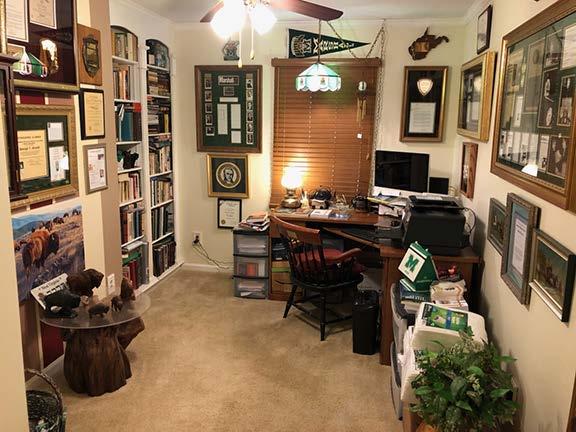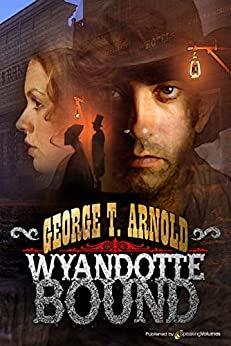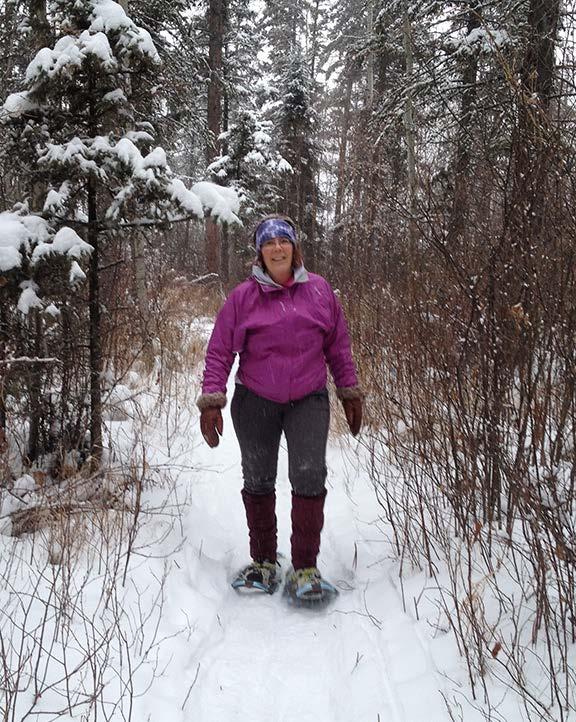
12 minute read
George T. Arnold
from Uncaged Book Reviews
by Cyrene
a short story, One Minute Past Christmas, and two novels, Wyandotte Bound, and Old Mrs. Kimble’s Mansion.
Stay Connected
Advertisement
Uncaged welcomes Christina Berry
Can you tell readers more about your newest book, Old Mrs. Kimble’s Mansion?
I am not certain how to catagorize it because it has romance, drama, and suspense. For readers who like romance, Forrest, the main male character, is cautiously caught up in a challenging new involvement while struggling with a long addiction to a perilous old love.
For those who like rags-to-riches tales, Forrest turns a tragedy at age 21 into an obsessive drive for money that earns him almost a billion dollars by his early 40s.
For admirers of drama, there is a magnificent but somewhat mysterious mansion whose presence provides the backdrop for the entire story.
And for lovers of suspense, there is a sensational murder trial whose outcome determines whether an extraordinarily beautiful woman of dubious reputation will become the wealthiest widow in the state prison or will be free to spend her late husband’s millions any way that pleases her.
What have you found the hardest to cope with during the pandemic? What are you looking forward to when a lot of restrictions are lifted?
I come from a very close family from West Virginia, and we are accustomed to spending much time together visiting and traveling with one another. That, by far, is the hardest thing. I also miss being with wonderful friends at church, eating at a variety of restaurants four or five times a week, and spending an occasional afternoon shopping at a nice mall. Most important, of course, is being relieved of the stress and worry I share with virtually everyone during the world’s first pandemic in more than a hundred years.
You have been a professor at a university for 36 years. What inspired you to start writing novels?
It came about mostly by chance. Perhaps more than anything else were a couple of casual remarks – one made by a sister and the other by a former student.
I have been writing professionally (journalistically and academically) for more then 60 years. I turned to fiction writing when I was about 70 and was riding around with family members in my small town (Lancaster, SC) a few days after Christmas. We just happend to pass a deserted lot that had a few trees grown for the sole purpose of beautifully decorating someone’s home for the holidays. But there were a few lying neglected and unwanted on the ground because everyone passed them by.
Since my childhood, when almost all families bought real trees for Christmas, I have always felt a deep sadness for the ones never given a chance to have their few days of glory. As we drove past one of the lots, I casually said, “You know, I have a perfect ending for a short story about these trees if someone would write it.”
My sister, Patty Arnold Noll, immediately said, “You know how to write; why don’t you turn it into a short story? I replied that although I know how to write journalistically and academically, I had no clue whether I had the imagination and creativy required for fiction writing. But I gave it a try and wrote One Minute Past Christmas.
| FEATURE AUTHOR |
Some time later, a former student wrote me a note on Facebook and said kind things about the story. His last sentence was a question, or perhaps a challenge: “Could there be a novel coming in the not-too-distant future?” I dismissed the thought until I wrote another short story that over time I turned into a four-part western/action/ romance novel, Wyandotte Bound. A year after I finished that, I wrote Old Mrs. Kimble’s Mansion. I wanted the challenge of obtaining a traditional contract in which the publisher pays all expenses and the author gets royalties. Speaking Volumes published both novels.
Do you edit out anything substantial in your novels in the editing process? Do you make that extra content available in any way to readers if you do?
No. I wrote my first novel, Wyandotte Bound, from beginning to end without sketching out a plot or figuring out an ending. I loved the freedom that process gave me because it doesn’t exist in journalistic and academic writing that stress painstaking research and strict adherence to facts.
From my background in journalism I learned the art of writing short sentences that flow easily from one to another, brief paragraphs that eliminate confusion, and simple words carefully chosen so readers do not have to have the novel in one hand and a dictionary in the other. From my background in teaching language skills, I learned how to develop smooth transiitons, arrange the order of words into flawless syntax, and how to avoid trite expressions, cliches, and wordiness.
(I have a language skills textbook/resource book – Media Writer’s Handbook, a Guide to Common Writing and Editing Problems – in its 7th edition and 25th consecutive year of publication, mostly with McGraw-Hill. It has been purchased at more than 300 colleges and universities.) I remember one from my childhood that made me both smile and have a few tears run down my face. It wasn’t sad; it was just so incredible beautiful. O Henry’s The Gift of the Magi.
6) What are some things you like to do to relax when you aren’t writing or working.
Of course, I like to read. I love old black-andwhite movies from the 1930s and 1940s. I like playing my jukebox that has a 1950s look but contains all the modern technology. I like taking long walks.
I love to bake. And I enjoy getting and answering emails, texts, and Facebook messages from old friends, classmates and former students. And I am startng to get messages from readers I had not known before they bought one or more of my books.
I am grateful for my many blessings every day and try never to take them for granted.
How many hours a day do you write? On average, how long does it take to write a full novel?
My fiction consist of only one short story and two novels. I wrote Wyandotte Bound over a couple of years. It started out as a short story that eventually turned into Part 1 of a four-part novel. About a year after writing the short story, I wrote a couple of pages that started Part 2. About a year later, I wrote the rest of it in a few months. I wrote Old Mrs. Kimble’s
Mansion in three months by working on it steadily but with no set number of hours or any set number of consecutive working days.
Each of the seven new textbook editions took much more time and were much harder to write than the fiction. The writing is laborious and takes great concentration because textbooks require absolute accuracy. The only creativity is thinking of interesting examples to illustrate how to use grammar and punctuation correctly. In fiction writing, I do not worry about the writing because it comes easily and it’s great fun to make things up. The challenge is to be imaginative and creative. I get satisfisfaction from writing journalistically and academically, but writing fiction is pure fun for me. I feel no pressure and no stress because I do not do it to make a lliving. I do it because I just
Do you prefer ebooks, audiobooks or physical books? Are you reading anything now.
Physical books, probably because of my age and my long established habits. I do like to listen to audiobooks when I am driving by myself on a long trip.
I just finished reading John Grisham’s latest novel, A Time for Mercy, and my friend Leila Meacham’s Dragonfly. They are my two favorite writers. During the pandemic, I have been doing almost daily FaceTime readings with my granddaughter and great-granddaughter, who live in West Virginia. We have finished six books – some for fun like Where

the Crawdads Sing, and some for education like The Story, which we are finishing now.
What would you like to say to fans, and where can they follow you?
My fiction is intended to entertain, to provide an enjoyable break from the work, demands, and stress of everyday life, and perhaps a nice escape from the serious concerns brought on by the pandemic.
I hope readers will like my writing style. Believe it or not, writing as I do with empahasis on short sentences, brief paragraphs and chapters and simple language is much more difficult than putting together complex sentences that cover half or more of a page with black type.
I do not want readers to have to strain their eyes to distinguish one line from the next or to have to look up the meanings of words not commonly used and meant to impress more than to inform. Short paragraphs also give readers a chance to do something I personally enjoy: to take a bite of a delicious snack or to take a sip of a favorite drink without losing their place on the page.
Enjoy an excerpt from Old Mrs. Kimble’s Mansion
Old Mrs. Kimble’s Mansion George T. Arnold Mystery/Suspence
Forty-four-year-old Forrest Alderson isn’t at all sure of his motives for returning from self-imposed exile to Asher Heights, West Virginia, to see his hometown for the first time since he graduated from college. All he knows for certain is it’s something he has to do if he is to find out whether he can break free from the tragedy that compelled him to flee or whether he is forever doomed to be imprisoned by it.
He has spent the intervening twenty-three years in sacrificial preparation, striving obsessively to become enormously wealthy with one exclusive goal: to at long last take possession of Old Mrs. Kimble’s mansion, no matter the cost, and let that magnificent structure he has coveted since he was a poor boy stand as proof to one and all that native son Forrest Walker Alderson has done himself proud.
Or could it be his return is motivated—as his attorney, Olivia Fillmore, fears—by revenge, an evil desire to rub his great wealth and success into the face of the one person who caused him to hermit himself away all those years without a wife, children, or even a close friend?
To have any chance of finding the answers he so desperately needs, Forrest will have to struggle through a challenging new romance, an addiction to a perilous old love, a sensational murder trial, and the inevitable decision about what to do with the rest of his life.
A Curious Request 1985
Excerpt
“Well, I certainly wasn’t expecting that,” Mr. Vermillion utters as he hangs up his phone and steps into the outer office to share the news with Cassandra Pierce, his partner at their law firm on Stanford Avenue in downtown Asher Heights, West Virginia.
“Not expecting what, John?” Cassandra mumbles, her mind focused on her day’s work schedule.
“A call with a curious request from a big-shot attorney at one of Chi-cago’s most prestigious outfits.”
asm, sensing she could be about to hear something that might provide a break from the monotony in the daily routine of a couple of small-town lawyers. “Get this, Cassandra. It seems someone who doesn’t want us to know his identity is hiring us to buy the old Kimble mansion for him, and never anybody mind that it may not even be on the market.”
“Fine with me,” Cassandra answers without looking up from her pa-pers, “but what if it’s not for sale? What makes that Chicago lawyer representing ‘Mr. Anonymous’ think we, of all people, can buy it? We’re not even in the real estate business.”
“To me, that’s the challenging part, my friend. That and the mysteri-ous nature of the request. ‘Money’s no object!’ ” she said. “In fact, she said it twice.
“The guy is so dead set on having that mansion, its condition is no barrier either. And what’s more, he’s sending us a five-thousand-dollar retainer this afternoon!”
“Well, whoop-de-doo,” Cassandra responds sarcastically. “Five thou-sand whole dollars? C’mon, John, there’s no way you’d be this giddy over that amount of money. What gives?”
“Oh, just a fifty-thousand-dollar bonus if we can persuade the owners to sell within the next two weeks. Tell me that’s not enough to get even your skeptical little heart pumping, Cassandra. So, you as ready as I am to get this adventure started?”
“Five figures does have a way of getting a gal’s attention!” she con-cedes, dropping the papers she had been carefully organizing as if they were so many used napkins. “How ’bout doing a drive by right now? We have an hour before we have to be in court.” “I’m game. Your car or mine?”
Unknown to John Vermillion, the offbeat phone call was set in mo-tion by an old acquaintance from his high school graduation class of 1959. Someone he has not seen or even thought about in more than “I knew I had my surrogate as soon as I checked out the list of Asher Heights lawyers and saw John’s name,” Forrest Alderson explains, sitting in the Chicago office of his primary attorney, Olivia Fillmore, who possesses a law degree from Yale, a Phi Beta Kappa key, and head-turner beauty.
“John wasn’t one of my run-around friends, but he was one of the best of the good guys I grew up with,” Forrest assures Olivia. “And I picked you to handle things for me because I trust you more than any-body else in this overpriced law empire I’ve been paying a fortune in retainer fees all these years.”
DON’T MISS THIS TITLE:

J.S. M ARL o

JS Marlo spent her childhood in a small French Canadian town, reading and daydreaming stories. One day, she met her hero, a dashing officer, and followed him back and forth across Canada. The “memorable” adventures she experienced with her young family fueled her imagination and kindled the dream of one day becoming an author. When her three spirited children left the nest in pursuit of their own adventures, she gave writing a chance. Ten years










